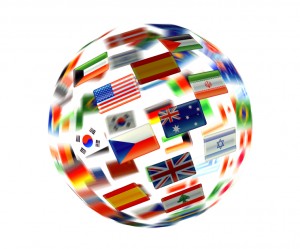 Egypt’s Constitutional Court Accuses Morsi of Leading Campaign Against It
Egypt’s Constitutional Court Accuses Morsi of Leading Campaign Against It
Egypt’s deputy head of the Supreme Constitutional Court accused Wednesday President Mohamed Morsi of leading a campaign against the court, as the president blamed the court for revealing its verdicts before the setting date, state- run Nile TV reported.
“The Constitutional Court has been attacked since it dissolved the former People’s Assembly, although it made its verdict according to law provisions,” said Maher Samy, the deputy-head and spokesman of the court.
“It’s unfair to charge the court of ruling according to political trends instead of according to the law and constitution, ” he added.
“The court will continue its mission and will never abandon its role approved by law provisions,” he added.
When Samy was asked if the Constitutional Court is to review the lawsuits demanding the dissolving of current Constitutional Assembly and the Shura Council as scheduled, he said “The court’s schedule is announced and won’t be changed.”
President Morsi issued last Thursday a new Constitutional Declaration which rules that all laws, decrees and constitutional declarations issued by the president since he came into office on June 30 are final and unchallengeable by any body, while it will not lead to reinstating the People’s Assembly.
It also ruled there is no judicial body entitled to dissolve the Shura Council (upper house) or the Constituent Assembly.
At least three people have been killed and more than 600 injured in Cairo and other governorates during nationwide protests since the constitutional declaration was issued.
The US and Canada Oppose Condemnation of Neofascism
The United States, Canada and Marshall Islands voted here against a resolution to condemn Neo-Nazism, Neo-fascism and other violent nationalist ideologies, based on racial and national prejudices.
Those three countries opposed a bill called Glorification of Nazism: Inadmissibility of certain pratices that contribute to fuelling contemporary forms of racism, racial discrimination, xenophobia and related intolerance.
The text was agreed on Monday during the Third General Assembly Commission with 120 votes in favor, three against and 57 abstentions and it must be approved later by the U.N. top authority.
To justify its stance, the U.S. delegation put forward that freedom of speech should not be restricted as a form of struggle against racism and other forms of intolerance.
The approved document reaffirms the condemnation of persistence and reappearance of Neo-Nazism, Neo-fascism, and other violent nationalist ideologies based on racial and national prejudices.
The resolution highlights that those phenomena are not justified “in any case or under any circumstances and warned about glorification of the Nazi movement and those who were members of the Waffen-SS organization in the past.”
Those actions cannot be justified as exercising the rights of assembly and peaceful association or freedom of opinion and expression, said the resolution opposed by the United States, Canada and Marshall Islands.
It also condemns the construction of monuments, organization of public demonstrations to glorify the Nazi past and Neo-Nazism, and condemns any attempt to desecrate or destroy monuments in memory of those who fought against Nazism.
It also warns about emergence of skinhead groups and reemergence of racist and xenophobic violence against members of national, ethnic, religious or linguistic minorities.
The document was presented by Russia and was co-sponsored by 42 countries, including Bolivia, Cuba, Nicaragua and Venezuela as Latin American and Caribbean representatives.
Hugo Chavez Continues Medical Treatment in Cuba
Venezuelan President Hugo Chavez arrived in Cuba early today to continue the medical treatment plan he has been following, as part of the process for strengthening his health.
According to Granma newspaper, the newly reelected statesman will undergo here several sessions of hyperbaric oxygen therapy.
Chavez underwent surgery in June 2011 to remove a malignant tumor, an ailment that required corrective surgery and chemotherapy sessions in this capital.
On Tuesday, the Venezuelan National Assembly approved a request for approval from the president to travel to the island.
According to the president, after six months of completing the last therapy, he was recommended to initiate a special treatment designed to strengthen his health.
